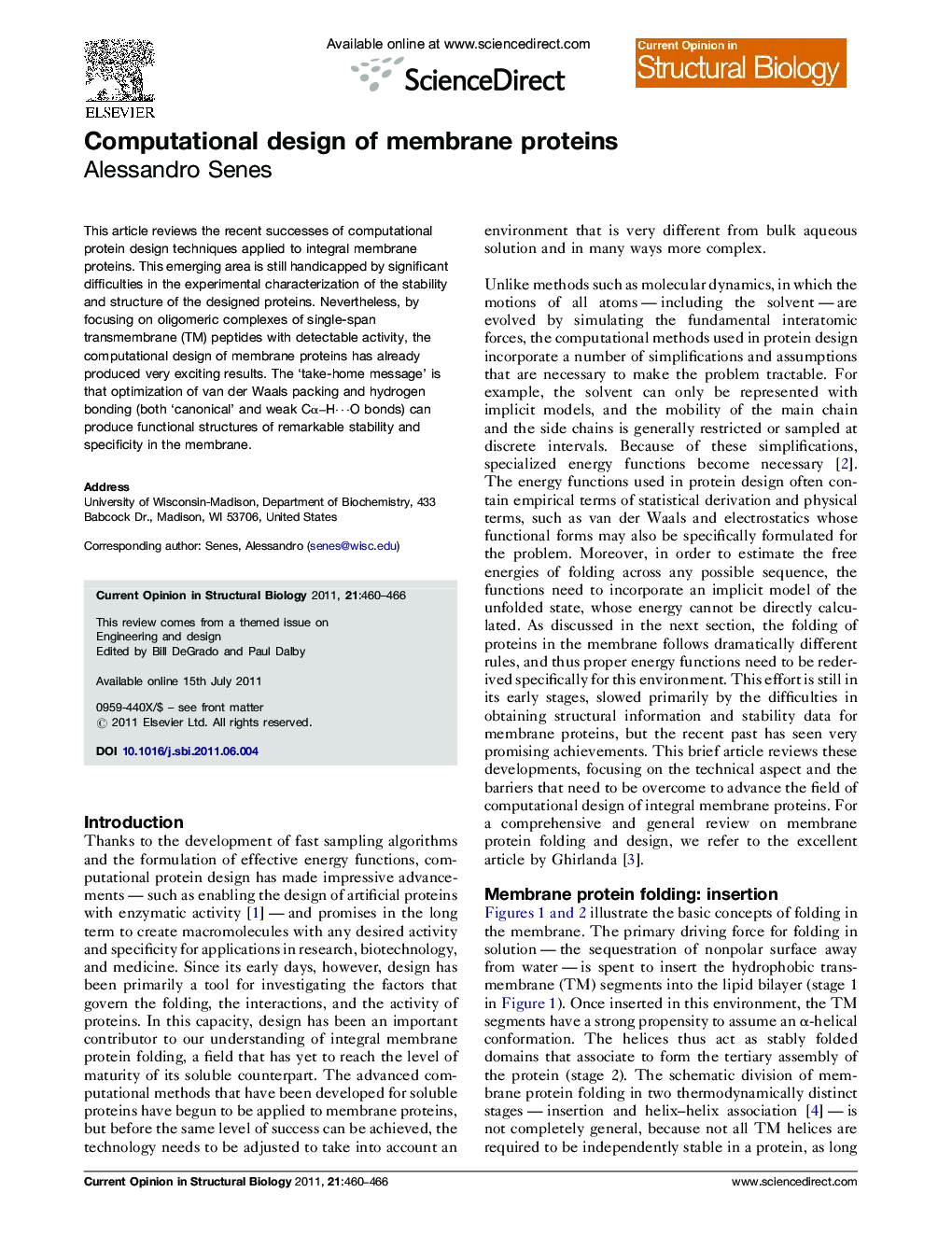| Article ID | Journal | Published Year | Pages | File Type |
|---|---|---|---|---|
| 1979326 | Current Opinion in Structural Biology | 2011 | 7 Pages |
This article reviews the recent successes of computational protein design techniques applied to integral membrane proteins. This emerging area is still handicapped by significant difficulties in the experimental characterization of the stability and structure of the designed proteins. Nevertheless, by focusing on oligomeric complexes of single-span transmembrane (TM) peptides with detectable activity, the computational design of membrane proteins has already produced very exciting results. The ‘take-home message’ is that optimization of van der Waals packing and hydrogen bonding (both ‘canonical’ and weak Cα–H⋯O bonds) can produce functional structures of remarkable stability and specificity in the membrane.
► Recent successes of computational protein design applied to integral membrane proteins. ► Difficulties in experimental characterization still handicap computational protein design. ► Exciting results have been obtained with active oligomeric single-span TM peptides. ► Optimization of packing and hydrogen bonding can produce stable functional structures.
